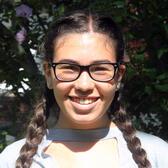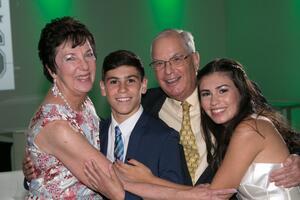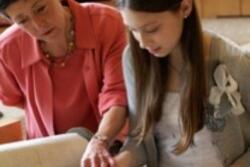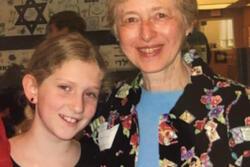Lessons from Savta
I always knew my grandma was pretty cool. As soon as activism became something of interest to me, my mom started telling me stories about her experiences growing up with my grandmother. They never ate Domino’s because the owner had expressed strong anti-choice sentiments; they didn’t eat grapes to support Cesar Chavez; activism was simply ingrained in my mom’s life from a very young age — mostly because of her mom.
Needless to say, I was very excited to sit down with my grandma and learn more about the amazing woman that raised my (also amazing) mother. She seemed excited, too, as she gushed about her childhood in the Boston area. She spoke about the affluent high school she went to — one where she was wealthy enough to attend but never wealthy enough to quite fit in, and about her household that was always filled with family and love. Her activism in high school mainly focused on her involvement with her local Jewish youth group. She recounted doing community service with the group around Boston, including painting the walls of a settlement house in the city. She explained to me that the programming emphasized “the idea that you would stand up for people who didn’t have as much as you did.” As a young Jewish activist myself, this idea strongly resonates with me.
After college and receiving Master’s degrees in both Education and Community Counseling, she lived in a suburb of Philadelphia with my grandpa and their two kids. She explained to me that it was very difficult to get a job as a public school teacher. She had a friend with connections at a local abortion clinic, so she took a job as a counselor. Her job was to speak to women who came through the clinic and ensure that they felt they were making the choice that was best for them. “The thing that I found the most…significant was that no one makes that decision lightly.” She told me the story of a woman who came in who was pregnant with her third child, saying that the woman would’ve been happy to have another child, except that she had been recently diagnosed with breast cancer, and the chemotherapy she needed to undergo couldn’t happen while she she was pregnant. The experience seemed to have given her a much heavier understanding of what it meant to be pro-choice. “Sometimes, people who do not support abortion say that it is just a form of family planning, and my experience was just totally the opposite.” She explained to me how dealing with this issue directly significantly changed how she advocated for her pro-choice stance.
So much of what my grandma said during our conversation affected me on a personal level — her talk of abortion reminded me of my own experience with gun violence after someone I knew was affected by the Parkland shooting, and her experience with activism and her Jewish youth group spoke to my own relationship with Jewish activism at camp and NFTY. To me, though, what resonated most was the way she spoke about her current relationship with Judaism and activism. She explained that while she was always aware of the connection between the two, that connection never meant as much to her as it does today.
For many years, she described my grandpa — the Rabbi and head of their local Social Action Commission — as the voice of that connection between faith and empowerment. “I never really had to think about it…I took it for granted,” she explained. Today, however, she actively seeks out her own connection between the two and uses it to fuel her activism in a way that she never has before. “How folks are not seeing this as a Jewish cause is puzzling me,” she said defiantly, speaking about issues like gun violence and freedom of the press. I got chills in that moment. Her words resonated with me on a physical level. To me, every social justice cause is a Jewish cause, and the shared understanding of this significance was electrifying.
Many of the commandments in the Torah begin with, “Because you were slaves in Egypt…” and I take that to heart. The idea of shared memory–we were all at Mount Sinai–is one that is very important to me. I may not have experienced slavery in Egypt, or the Holocaust, but because my people have suffered oppression, it is my responsibility to advocate for others who are currently suffering oppression. To me, every issue is a Jewish issue, and I share my grandma’s defiance–it is ignorant and complacent to disregard certain issues just because they don’t affect you directly. In her words, “I am very, very concerned that people do not see that if you are Jewish, you need to stand up and speak out and support the values of social justice. You cannot stand idly by.”
This piece was written as part of JWA’s Rising Voices Fellowship.








Awe this is so sweet!
I am so glad you have such a wonderful grandmother, but I'm especially glad that she has you for a granddaughter.